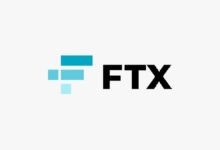FTX Flags More Privacy Tools After Tornado Cash Sanctions

FTX appears to be blocking users from sending funds that interacted with privacy-focused Aztec protocol.
The crypto exchange warned users against using Aztec Connect, Aztec Network and zk.money as they are “high-risk” services, according to screenshots and tweets posted by multiple FTX users.
One user said access to his FTX account was frozen for transactions made to and from the service. Another suggested interacting with customer service privately to avoid related issues. The crypto exchange also appeared to ask some users the origin of their funds and the purpose of the transaction via email, one screenshot showed.
Aztec’s zk.money protocol, launched in March 2021, can be used to send and receive funds privately for direct Ethereum transactions. It uses a shield model similar to a virtual private network, allowing users to privately connect to Ethereum’s DeFi ecosystem, including Uniswap and Aave.
The move, first spotted by Chinese journalist Colin Wu, highlights FTX’s concerns about its exposure to risky addresses.
The crypto community reacted negatively to FTX’s restriction, with some pointing out a desire for privacy shouldn’t be criminalized. Others noted a chunk of wallets could get blocked for simply having indirectly interacted with private layer-2s like Aztec.
On top of that, to enforce it you’d basically have to block any wallet that ever received funds from any other wallet that even indirectly interacted with private L2s.
So like TC, if I interacted with Aztec and send you 0.1e, you’re fucked now.
It’s completely asinine.
— ☀️Mirionic (~templedao) (@mirionics) August 19, 2022
Neither FTX nor Aztec immediately confirmed the restricted access when contacted by Blockworks.
FTX’s compliance concern comes after the US Treasury sanctioned mixing service Tornado Cash, along with other 45 related Ethereum wallet addresses, for alleged virtual currency laundering for criminals.
Mixers have come under increasing scrutiny after an uptick in illicit money moving through such services in 2022. They are designed to conceal the identity of holders and the origins of currency by pooling together multiple transactions.
Other platforms following the same approach as Tornado Cash are likely to receive the same scrutiny, leading to additional measures for increased transparency, according to Tammy Da Costa, analyst at DailyFX.
“For virtual currency, the sanctions against these services have highlighted the shift in regulations that aim to monitor transactions made through a blockchain,” Da Costa told Blockworks in an email.
Zac Williamson, CEO of Aztec, criticized sanctions against Tornado Cash on Twitter, saying “there is a short window where heavy-handed regulation could strangle the innovation required to get us there.”
Get the day’s top crypto news and insights delivered to your inbox every evening. Subscribe to Blockworks’ free newsletter now.






 Bitcoin
Bitcoin  Ethereum
Ethereum  Tether
Tether  USDC
USDC  TRON
TRON  Dogecoin
Dogecoin  Cardano
Cardano  Bitcoin Cash
Bitcoin Cash  Monero
Monero  Chainlink
Chainlink  LEO Token
LEO Token  Stellar
Stellar  Zcash
Zcash  Litecoin
Litecoin  Hedera
Hedera  Dai
Dai  Cronos
Cronos  Tether Gold
Tether Gold  OKB
OKB  Ethereum Classic
Ethereum Classic  KuCoin
KuCoin  Cosmos Hub
Cosmos Hub  Gate
Gate  Algorand
Algorand  VeChain
VeChain  Stacks
Stacks  Tezos
Tezos  Dash
Dash  TrueUSD
TrueUSD  IOTA
IOTA  Basic Attention
Basic Attention  Theta Network
Theta Network  Decred
Decred  NEO
NEO  Synthetix
Synthetix  Qtum
Qtum  Ravencoin
Ravencoin  0x Protocol
0x Protocol  Zilliqa
Zilliqa  DigiByte
DigiByte  Nano
Nano  Holo
Holo  Siacoin
Siacoin  Numeraire
Numeraire  Waves
Waves  Ontology
Ontology  Status
Status  Enjin Coin
Enjin Coin  BUSD
BUSD  Hive
Hive  Pax Dollar
Pax Dollar  Lisk
Lisk  Steem
Steem  Huobi
Huobi  OMG Network
OMG Network  NEM
NEM  Bitcoin Gold
Bitcoin Gold  Augur
Augur  Bitcoin Diamond
Bitcoin Diamond